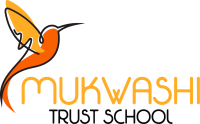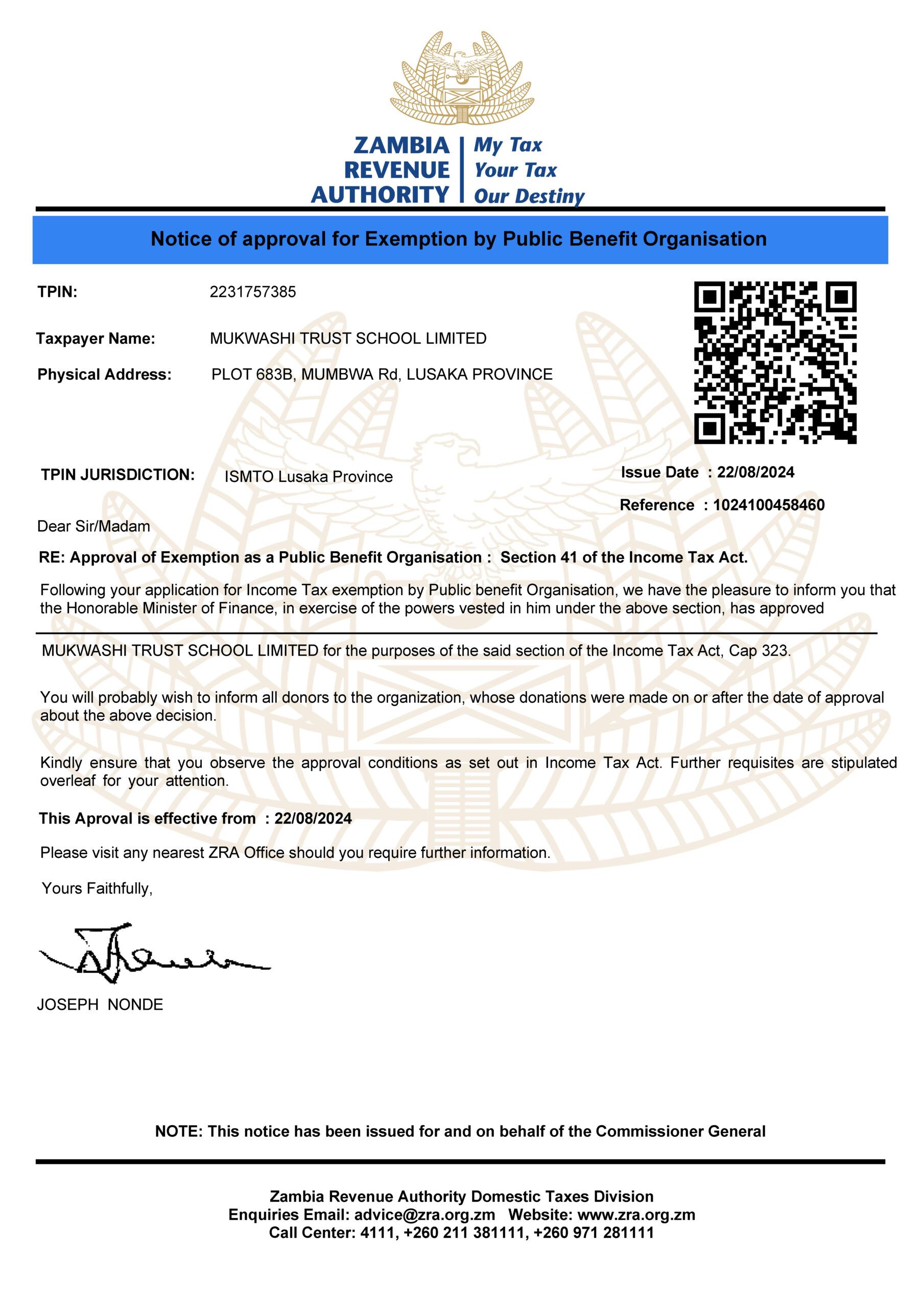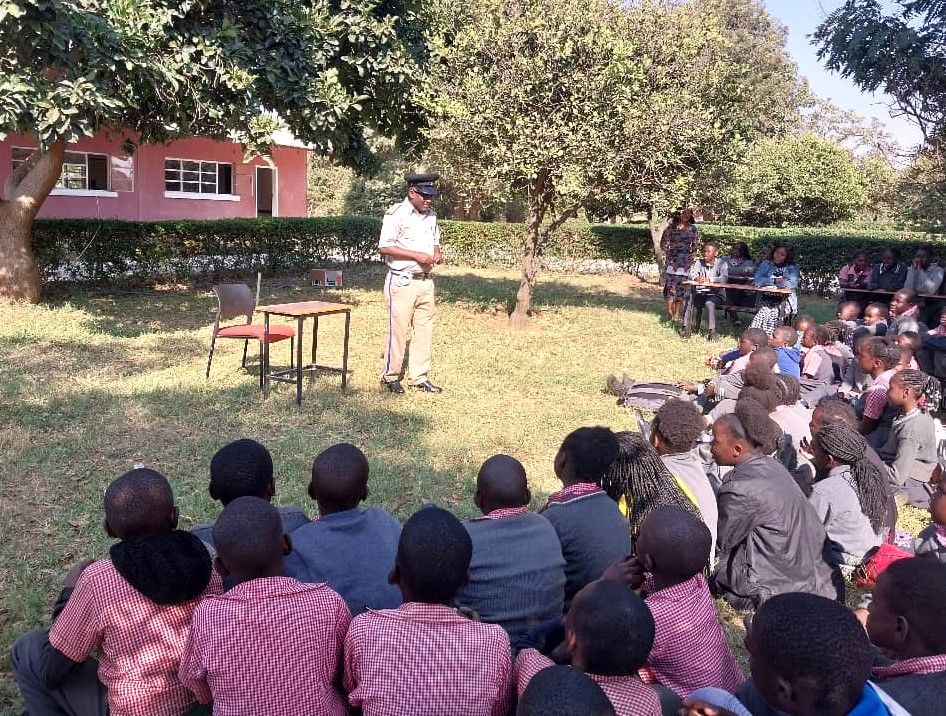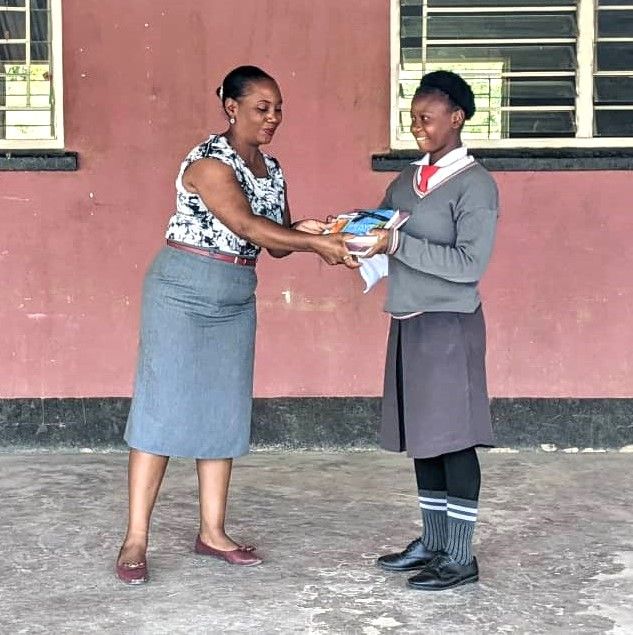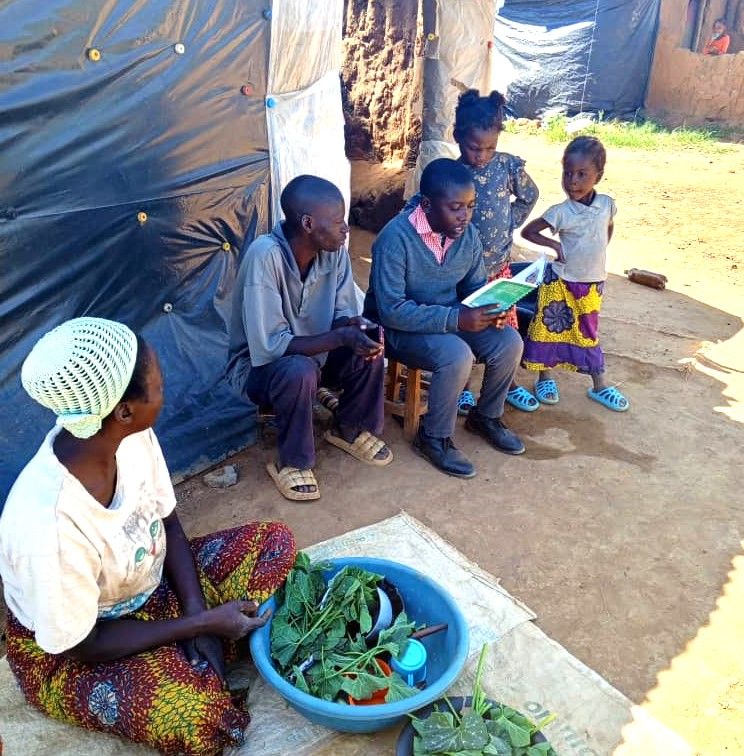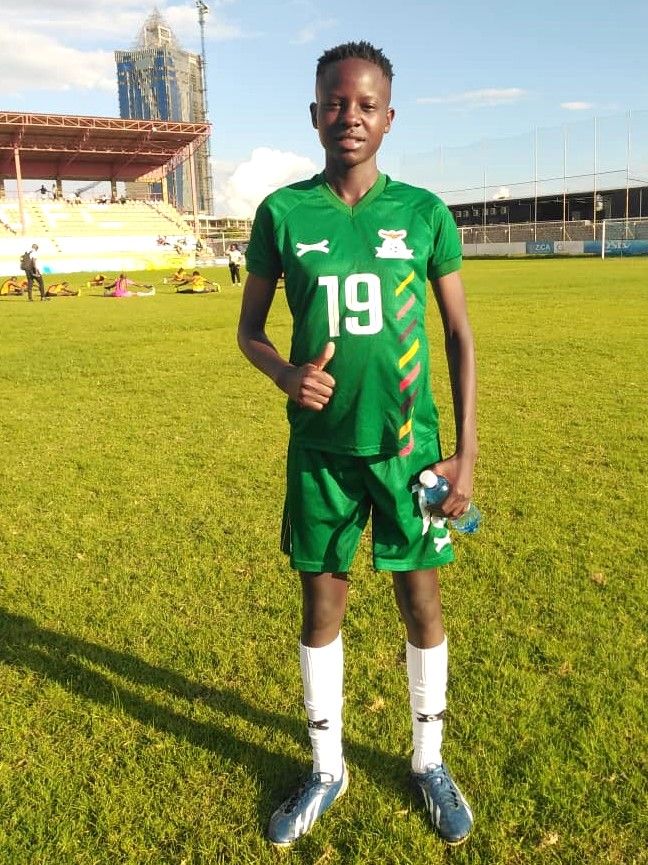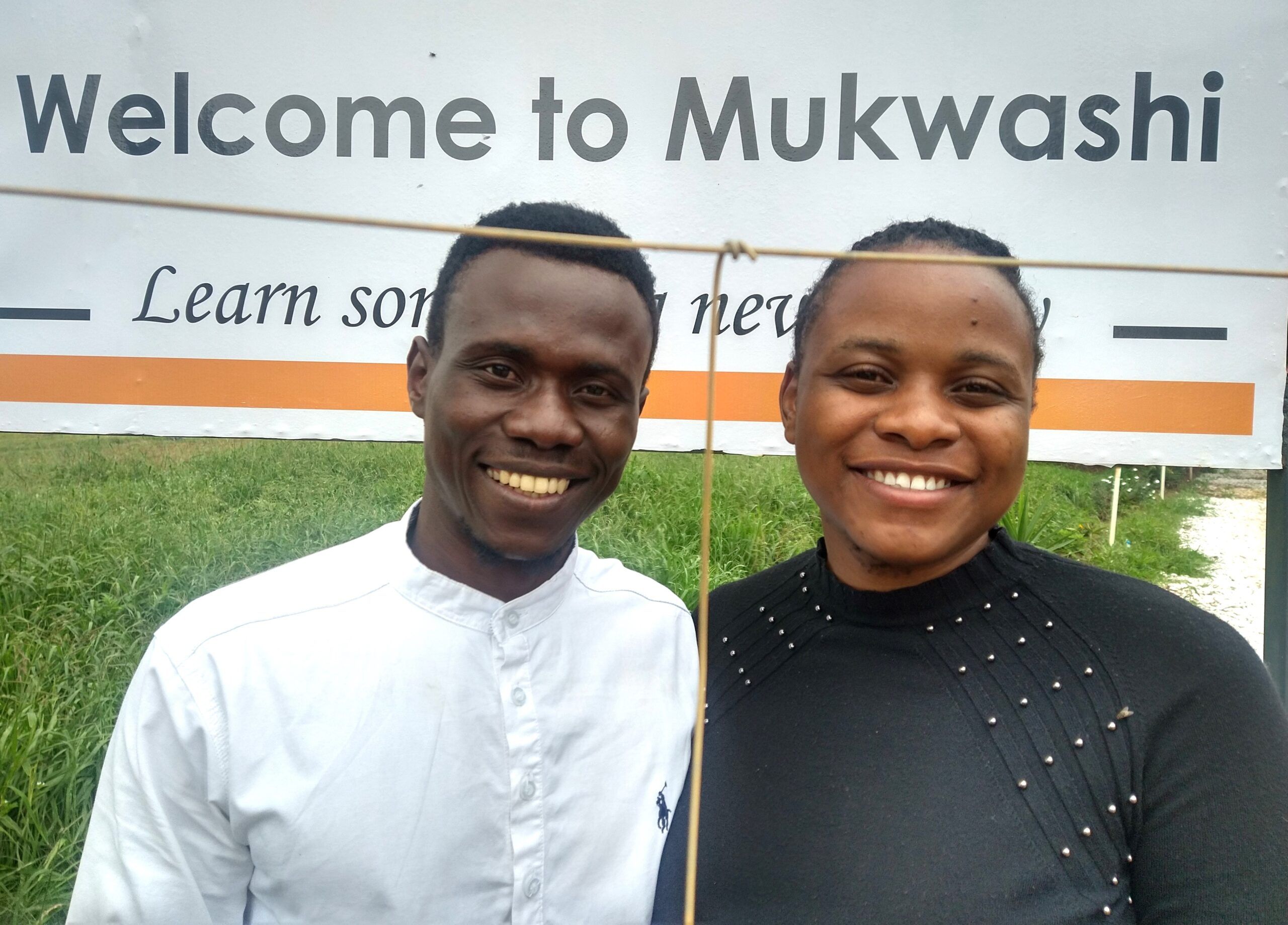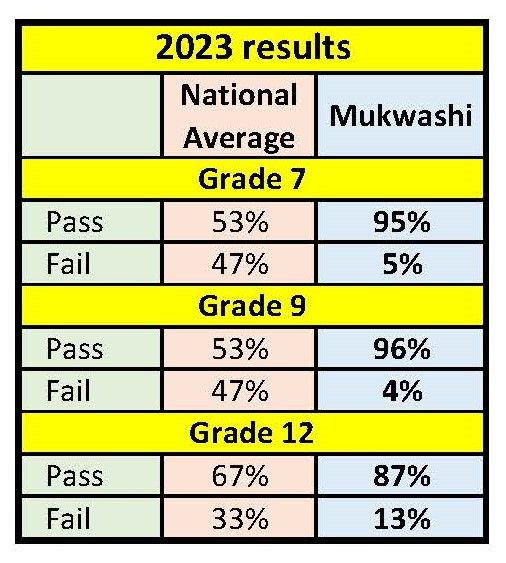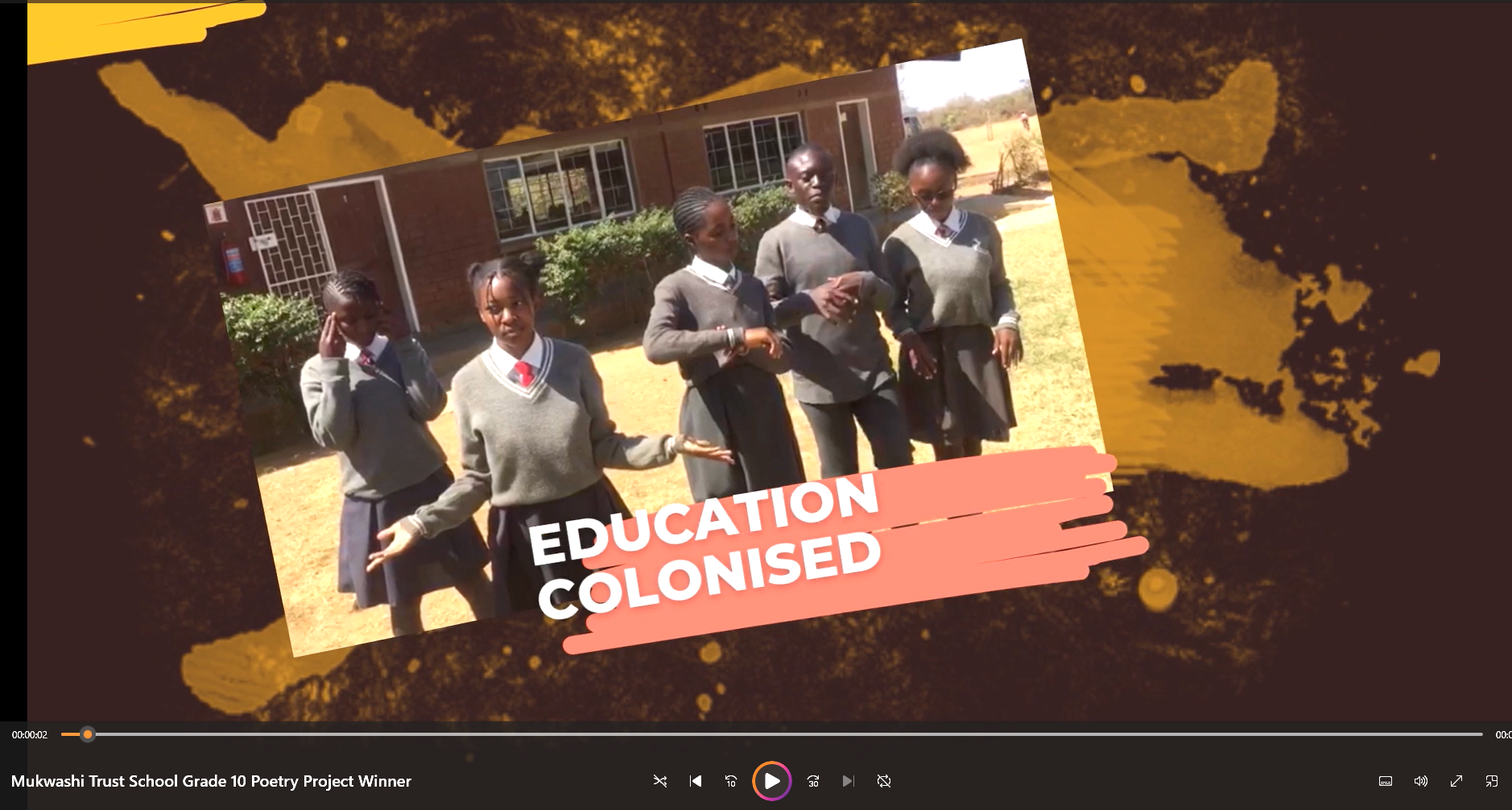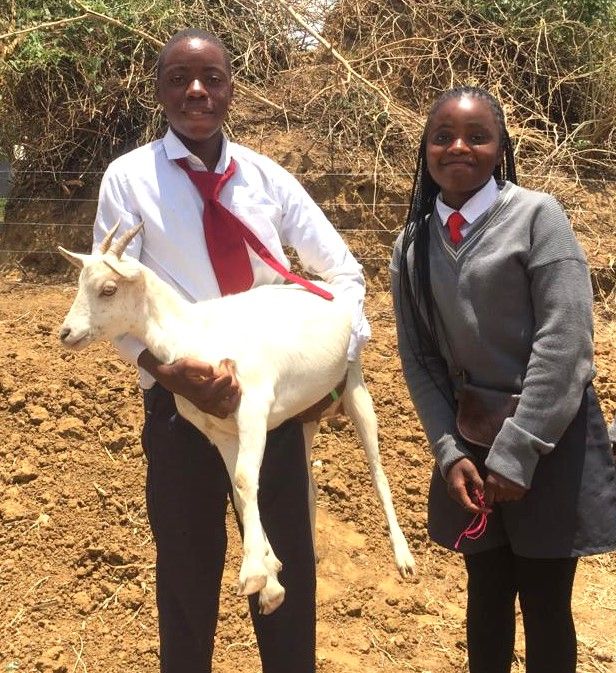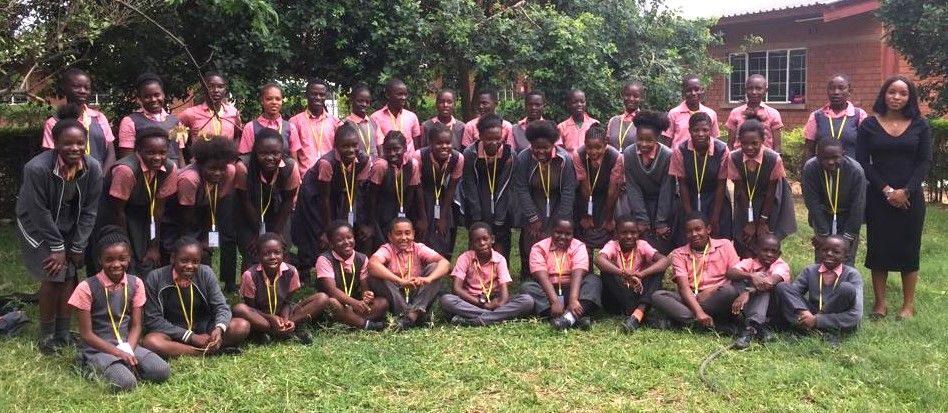Finally, after four years of polite & patient persistence…
It’s our ‘between-term’ break this month, and we’re having a blitz on important maintenance work. We’re busy replacing all the old louvre windows in the Upper Secondary block, Science Lab & Staff toilets with more appropriate bespoke windows. Finally, we’ll be able to keep the rain out of these classrooms and stop birds roosting in the building every evening.

This break, we’re also ‘transforming’ the school office with two coats of white paint and all the left-over floor tiles from the toilet block – parents and learners won’t recognise it next term.

And we’re also trying to make the school kitchen a more ‘easy-to-clean’ and professional space for our catering team by tiling the walls and using the ‘off-cuts’ from the first stage of the housing project to tile the floor. It looks amazing!

Then, suddenly, our frenetic activity was interrupted by some wonderful ‘out-of-the-blue’ news from the Zambian Revenue Authority. After four years of repeated applications, rejections, conferences, frustrations, re-applications, more rejections, an inspection, more discussions followed by long silences, we received an email stating that the Finance Minister had formally recognised the school as a Public Benefit Organisation (PBO). Cue wild celebrations in Zambia, South Africa, Angola, Canada, Austria and the UK!
Finally, this is the formal ‘official’ acknowledgement by the Zambian government that Mukwashi is genuinely ‘different’ and is not like other ‘private’ schools. For us, PBO status is a massive step forward to local sustainability and to local recognition that Mukwashi is a truly ‘Zambian’ school.
PBO status is important in the Zambian educational community because it is a very public ‘seal of approval’ – which also considerably strengthens our applications to funders. Practically, it also means the government rewards us for our contribution to the Zambian ‘public benefit’ by exempting us from VAT on construction materials and imported goods. So it is very good and encouraging news!
